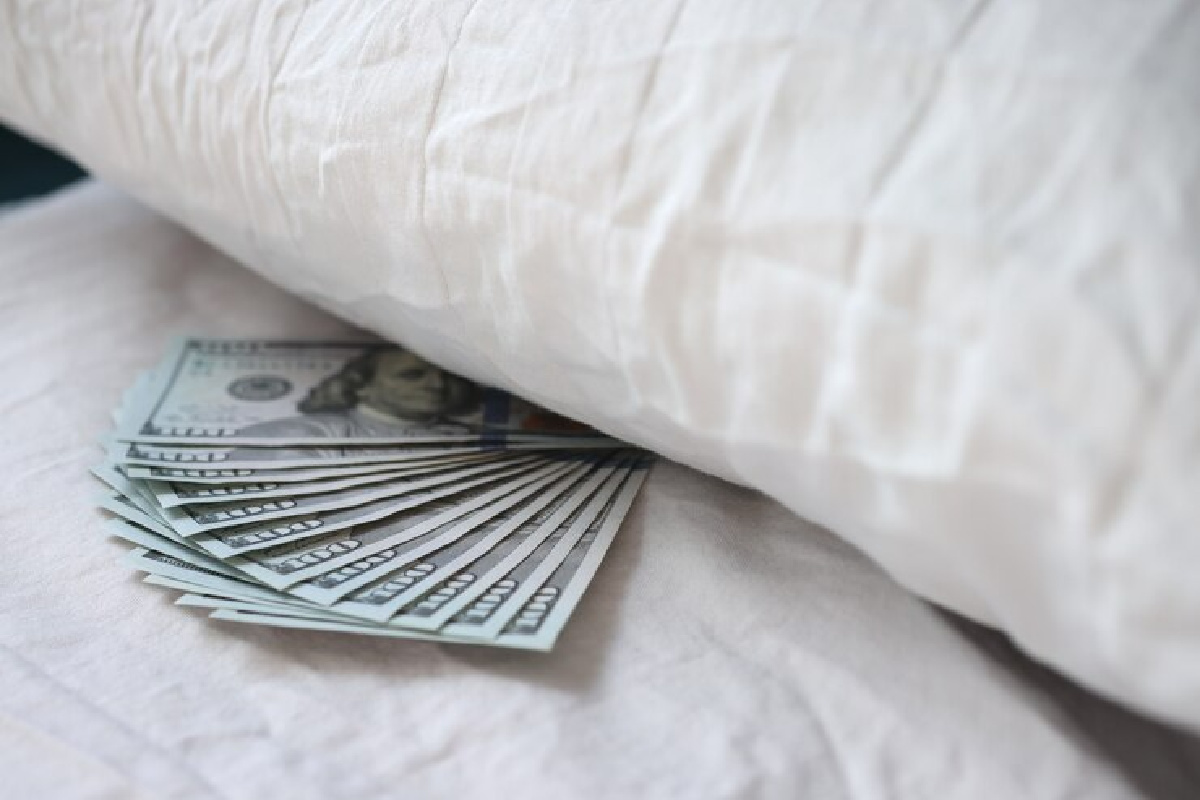If you walk through the streets of New York City, it is quickly evident that the Covid-19 Pandemic has taken not only toll on New Yorkers from a health perspective but from an economic perspective as well. From shuttered stores and restaurants, to the many “for lease” signs in locations that were the once home to major popular retailers, the economic devastation is abundantly clear. It is also evident in the record number of retail businesses filing corporate bankruptcies this year, such as Century 21, Lord & Taylor and J.C. Penney. What is involved when a such a corporation files for bankruptcy?
Corporate Bankruptcy: An Introduction
Typically, when a business is struggling financially and overburdened with debt, it has two options with respect to bankruptcy relief: Chapter 7 and Chapter 11. The filing choice depends on whether the company wants to cease operations and close down or whether they want to continue to operate, even if it winds down some if its business operations. In a Chapter 7 case, the business closes and its assets are sold off to pay creditors. In a Chapter 11 case, the business reorganizes its debts in a court ordered repayment plan. Please note that businesses do not receive a discharge of its debt in bankruptcy.
Chapter 7 bankruptcy is often referred to as “liquidation” bankruptcy. Businesses who file for this form of bankruptcy must allow a Trustee to sell off its assets to pay their creditors. In a Chapter 7 case, the trustee takes over and closes down the business. The trustee has a duty to act in the best interest of the unsecured creditors while administering the case and may operate the business for a short time if that generates more money for the creditors.
Chapter 11 bankruptcy, on the other hand, is often referred to as “reorganization” because the process allows a business to restructure their debt while continuing to operate. Although the company’s management continues to run the business on a day-to-day basis, all significant business decisions have to be approved by a bankruptcy court. The business has to file a plan with the court, detailing how it will pay creditors and in what order. It can also reorganize its finances and consolidate its operations. Chapter 11 is the most complex form of bankruptcy and generally, the most expensive. It is most often used by businesses and high-income individuals. In some cases, where a business is a sole proprietorship and the debtor meets specific debt limits, a debtor/owner can file a Chapter 13 which is less complex and as a result, the legal fees will be much lower. The current debt limits for a Chapter 13 are $419,275 for unsecured debt and $1,257,850 for secured debt. Only a fraction of the business filings for bankruptcy would meet these requirements.
In a Chapter 11 filing, the owners of the business continue to operate the business. The debtor is considered the “debtor in possession” because generally no trustee is involved. The debtor in possession has the exclusive right to propose a bankruptcy plan of reorganization for a certain period of time. Unsecured creditors may form a creditors’ committee to ensure the bankruptcy plan meets their best interests under the bankruptcy laws. After a certain period of time, creditors are able to file a competing plan. The debtor’s bankruptcy plan can propose different treatment for creditors’ claims and even cram down secured creditors by changing the terms of the repayment, including the interest rate. Ultimately, the court will determine what is in the best interest of creditors and may approve a bankruptcy plan following a confirmation hearing. If a company is successful in Chapter 11, it will typically be expected to continue operating in an efficient manner with its newly structured debt. If it is not successful, then it will convert to Chapter 7 and liquidate their assets.
The Small Business Reorganization Act of 2019, which went into effect on February 19, 2020, added a new subchapter V to Chapter 11. This subchapter was designed to make bankruptcy easier for small businesses, which the code defines as those with $2.7 million in debts and also meet other criteria. The law imposes shorter deadlines for completing the bankruptcy process, allows for greater flexibility for both negotiating and restructuring plans with creditors. The Coronavirus Aid, Relief, and Economic Security (CARES) Act, signed into law by President Trump on March 27, 2020, made a number of temporary changes to bankruptcy laws designed to make the process more available to businesses and individuals who were economically distressed by the Covid-19 Pandemic. These include raising the Chapter 11 subchapter V debt limit to $7.5 million and excluding federal emergency relief payments due to COVID-19 from “current monthly income” in Chapter 7. The changes apply to bankruptcies filed after the CARES Act was enacted and are set to expire after one year.
Increase in Corporate Retail Bankruptcy Filings
If you read the business section of the newspaper or have been watching the news on television, you will notice something that does not quite make sense. The stock market has been performing extremely well during the Covid-19 Pandemic but the retail corporate bankruptcy filings have increased significantly. Twenty-seven large retail corporations have filed for bankruptcy in 2020 so far, and only 5 of these bankruptcies were pre-Pandemic. The retailers that have filed for bankruptcy so far this year include:
- Century 21 (Sept. 10)
- Stein Mart (Aug. 12)
- Tailored Brands (Aug. 2)
- Lord & Taylor (Aug. 2)
- Ascena (July 23)
- The Paper Store (July 14)
- RTW Retailwinds (July 13)
- Muji USA (July 10)
- Sur La Table (July 8)
- Brooks Brothers (July 8)
- G-Star Raw (July 3)
- Lucky Brand (July 3)
- GNC (June 23)
- Tuesday Morning (May 27)
- Centric Brands (May 18)
- J.C. Penney (May 15)
- Stage Stores (May 11)
- Aldo (May 7)
- Neiman Marcus (May 7)
- J. Crew (May 4)
- Roots USA (April 29)
- True Religion (April 13)
- Modell’s Sporting Goods (March 11)
- Art Van Furniture (March 9)
- Bluestem Brands (March 9)
- Pier 1 (Feb. 17)
- SFP Franchise Corp (Jan. 23)
The number of corporate bankruptcy filings is expected to continue to increase as the second wave of the Covid-19 Pandemic hits this fall. Furthermore, the corporate retail bankruptcy filing rate does not capture the effect being felt by small and medium-sized corporations. Many companies close without filing for bankruptcy protection, hence this fact is not reflected in the corporate filing rate. Furthermore, as federal stimulus relief for small businesses dries up, more small businesses will be forced to close their operations. Despite the increase in corporate bankruptcy filings, retail businesses with well-developed online stores are flourishing during the Covid-19 Pandemic.
The Pandemic Economy and Online Shopping
Many apparel chains and department stores have seen sales drop significantly during the Covid-19 Pandemic. For example, clothing sales are down 20% since the Pandemic struck. While some companies have filed for bankruptcy due to decreased revenue and mounting debt, other companies are doing quite well in the Covid-19 Pandemic economy. Besides online retailers like Amazon, many chain stores that remained open, such as Best Buy, Dick’s Sporting Goods, Walmart and Target, have seen revenues jump. Some have also gained a new edge in e-commerce as they expanded options to enable customers buy online and then pick up a purchase, in-store or curbside. Additionally, companies that sell furniture and home improvement items, such as West Elm, Lowes and Home Depot are seeing large profits. Other companies, such as IKEA saw profits fall due to a large number of store closures but also saw online retail expand rapidly.
One of the large changes caused by the Covid-19 Pandemic is the amount of people working from home remotely. This sudden but significant shift in working environments has also caused a big change in buying habits. Specifically, the work-from-home trend has led to a boom in purchases to improve home living situations and home offices to satisfy remote working needs and also to keep people busy while they are spending additional time at home. However, not everyone is lucky enough to have a job that allows them to work remotely. Hundreds of thousands of Americans are out or work and are slipping into poverty. Food pantries cannot keep their shelves stocked. The recession we are in now may last for a long time. Economists say the full impact of these types of store closings in the consumer economy may not be felt for a few months, when the effects of the stimulus wear off. Those Americans who are unemployed will be the first to pull back on spending. Those with jobs may start to lose confidence in the economy and will stop buying as much. A new stimulus bill may prevent further the economy from getting worse, but the retail economy was changing even before the Covid-19 Pandemic.
It’s Not Just the Pandemic
The increase in retail bankruptcies is not just being caused by the Covid-19 Pandemic. Retail businesses has been suffering for a long time. Even before the Covid-19 Pandemic, many brick and mortar retailers were experiencing a significant reduction in business. The fact is that online shopping can be very convenient and online retailers can charge lower prices by saving on expensive commercial real estate rental costs. Furthermore, consumers are able to aggressively comparison shop online, which is much harder to do in a physical store. The Covid-19 Pandemic has made a bad situation even worse for in-store retailers by exacerbating retailer’s losses as many Americans socially distance themselves. Shoppers are avoiding going into stores and ordering items they need online. The disparities in how people shop now hints at a recovery that is both uncertain and uneven.
If you are overwhelmed by business debt, whether it is personally guaranteed or not, a bankruptcy filing can provide you the financial relief you need. For over 24 years, the Law Offices of David I Pankin, PC, we have been helping business owners with debt problems. If you have any questions about a business bankruptcy or personally guaranteed debt, please feel free to contact the Law Offices of David I Pankin, PC at 888-529-9600 or using our easy online contact form. David Pankin is a NYC bankruptcy lawyer with convenient office locations in Brooklyn, Manhattan and Long Island. We provide remote video conferencing for individuals that prefer no contact consultations.
Further Reading:






